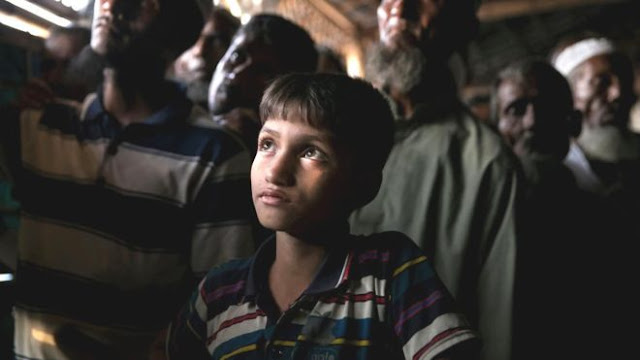Corona virus threatens Myanmar's most vulnerable in displacement camps
An expected 350,000 dislodged individuals across Myanmar are "sitting in the way of a general wellbeing fiasco", says rights bunch Human Rights Watch (HRW).
Congestion, development limitations and poor sanitation have left these gatherings particularly powerless against the coronavirus episode, HRW said.
Myanmar had its first diseases a week ago and its first demise on Monday.
An administration official had recently guaranteed the nation's "way of life and diet" ensured its kin.
Myanmar, which is home to around 51 million individuals, has a poor medicinal services framework.
An enormous level of the populace doesn't approach even essential medicinal services, Associate Professor Nehginpao Kipgen of the Jindal School of International Affairs disclosed to BBC News - substantially less the individuals who are uprooted.
Individuals living in camps frequently battle to get even fundamental access to clean water and other basic administrations.
Well being conditions are as of now unfortunate for dislodged individuals in Rakhine, Kachin, and northern Shan camps, and now Covid-19 is taking steps to pulverize these helpless networks,said Brad Adams, Asia executive of HRW.
UK-based foundation association Oxfam shared some knowledge into the circumstance at one camp in Rakhine state - and how troublesome it would be under typical conditions to get treatment.
In the event that somebody becomes sick and needs progressively specific consideration, they should look for and get official authorization, which regularly takes a couple of days... [and] pay for a security escort to go with them to the medical clinic,said the association in an announcement.
The possibility to 'wreck' networks
Floods of common viciousness in Myanmar have dislodged a huge number of individuals, numerous from the abused Rohingya Muslim minority.As indicated by a report distributed on Monday by HRW, around 130,000 Muslims in Rakhine state live in outdoors confinement camps, with incredibly limited access to wellbeing offices, none of which have Covid-19 testing offices.
The report says that in such camps, one can is shared by upwards of 40 individuals, one water passageway by upwards of 600 - making it simple for the infection to be transmitted.
It includes that these individuals are "adequately detained... discretionarily precluded opportunity from claiming development" and accordingly unfit to get to general wellbeing offices regardless of whether they needed to.
Congestion in the camps is inescapable, making physical removing almost unthinkable and fundamentally expanding the danger of transmission, said the HRW report.
The report approached the administration to lift limitations on such camps, and to allot extra space to individuals to take into consideration social separating to occur.
In any case, it's not simply the states of uprooted individuals that have specialists stressed.
The World Health Organization has positioned Myanmar's medicinal services framework as one of world's most noticeably awful following quite a while of disregard under the military principle, said Prof Kipgen.
While urban areas like Yangon and Mandalay have better offices, numerous pieces of the nation despite everything don't have essential medicinal services administrations.
A solid way of life and diet?
For quite a long time, specialists denied that there were any cases in the nation, which imparts a fringe to China. Many residents cross the fringe each day to work in China, frequently illicitly, state neighborhood reports.Myanmar imparts a fringe to China [that is] over 2,200km long. It invited right around 750,000 Chinese guests in 2019 - [its] biggest wellspring of the travel industry, said Prof Kipgen.
Myanmar's moderate reaction to the flare-up has been vigorously scrutinized. Starting late March, around 300 infection tests had been completed the nation over, as indicated by Reuters news office.
Government representative Zaw Htay had said the nonappearance of cases was because of Myanmar's "way of life and diet", including that since residents for the most part paid for buys with money rather than charge cards, they were probably not going to spread the infection.
Myanmar currently has 14 affirmed instances of the infection, for the most part from individuals who have voyage abroad. On Monday, it recorded its first infection related passing, a 69-year-old who additionally experienced malignancy. He had as of late headed out to both Australia and Singapore.
There are presently 859,566 affirmed cases over the world with somewhere in the range of 42,332 passings as indicated by a count by Johns Hopkins University.








No comments